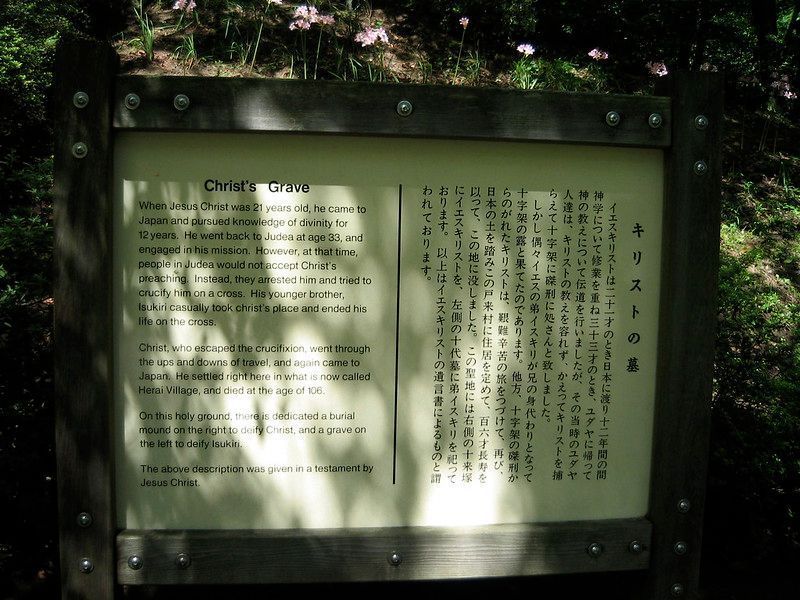
Did Jesus go to the Cross or to Japan?
By Richard Nakamura
, a member of the
Diaspora | North America
team
"Is the Easter story of Jesus’ resurrection true?" That was one of the questions raised in our Japanese Bible study. Did you know there is another theory based in Japan? Instead of Jesus dying on the cross, it was his brother, Isukiri, who was crucified. The “real” Jesus escaped and landed in the far-away land of Japan, in a place named Herai (Shingo) Village up in the Tohoku area. Here he settled and died at the ripe old age of 106.

This sign is at the site in Herai Village where some believe Jesus was buried.
Can this story be true? This led to a wonderful discussion and study. The answer to this question is very important. According to 1 Corinthians 15:17, “If Christ has not been raised, your faith is futile and you are still in your sins.” If there was evidence that Christ’s remains are indeed in Japan, that would destroy Christianity. The enemies of Christianity would rejoice. If it was Jesus’ brother who died, that would mean that Jesus’ own mother mistook Isukiri to be Jesus, along with all the disciples, other family members and followers. The Pharisees and Roman soldiers would have been careful to crucify the correct Jesus. Did they too make a huge mistake? And when the disciples claimed that Jesus rose from the dead, all the naysayers would have to do is produce the dead Isukiri. And if at that point they discovered the switch, they would have proceeded to look for the real Jesus. There would be no Christianity.
Instead, the disciples changed from being cowards to becoming bold witnesses, even to the point of persecution and death. We can be assured that the record from Scripture, with real eyewitnesses, is reliable. And because Jesus lives, we who believe this wonderful message will rise again to eternal life as well.
Additional Posts





